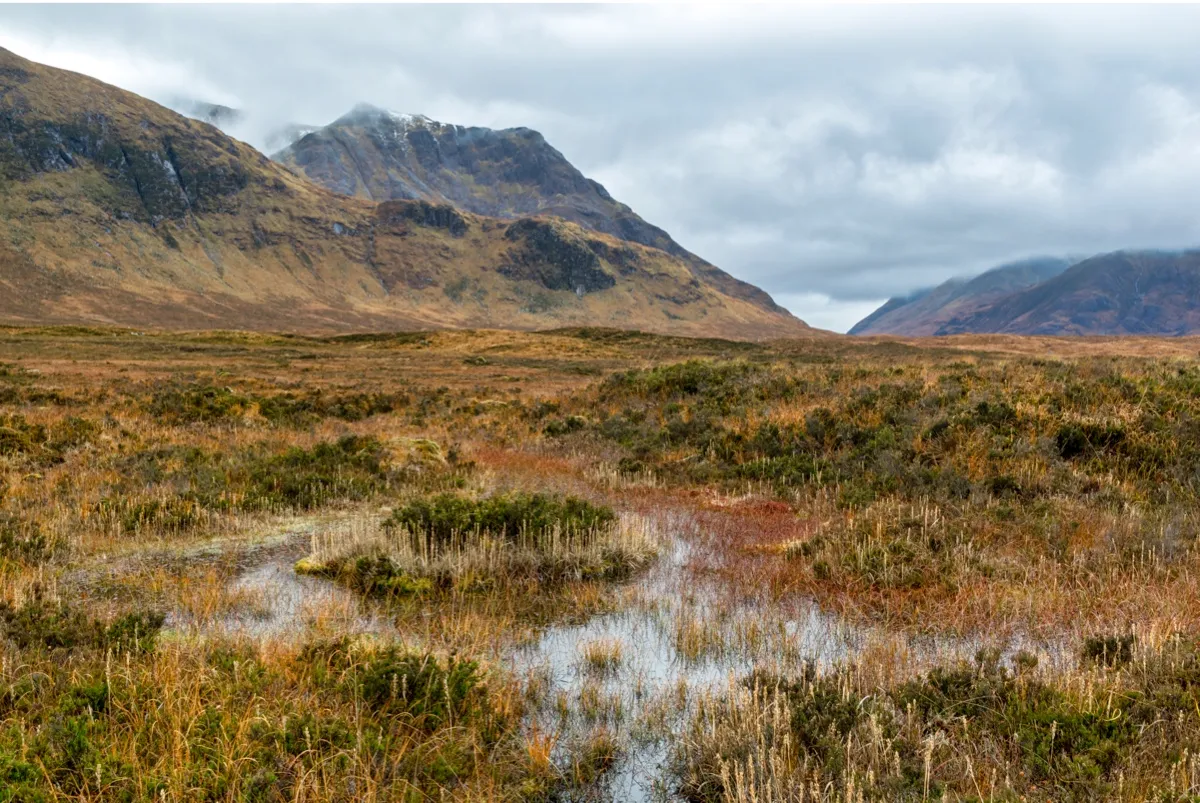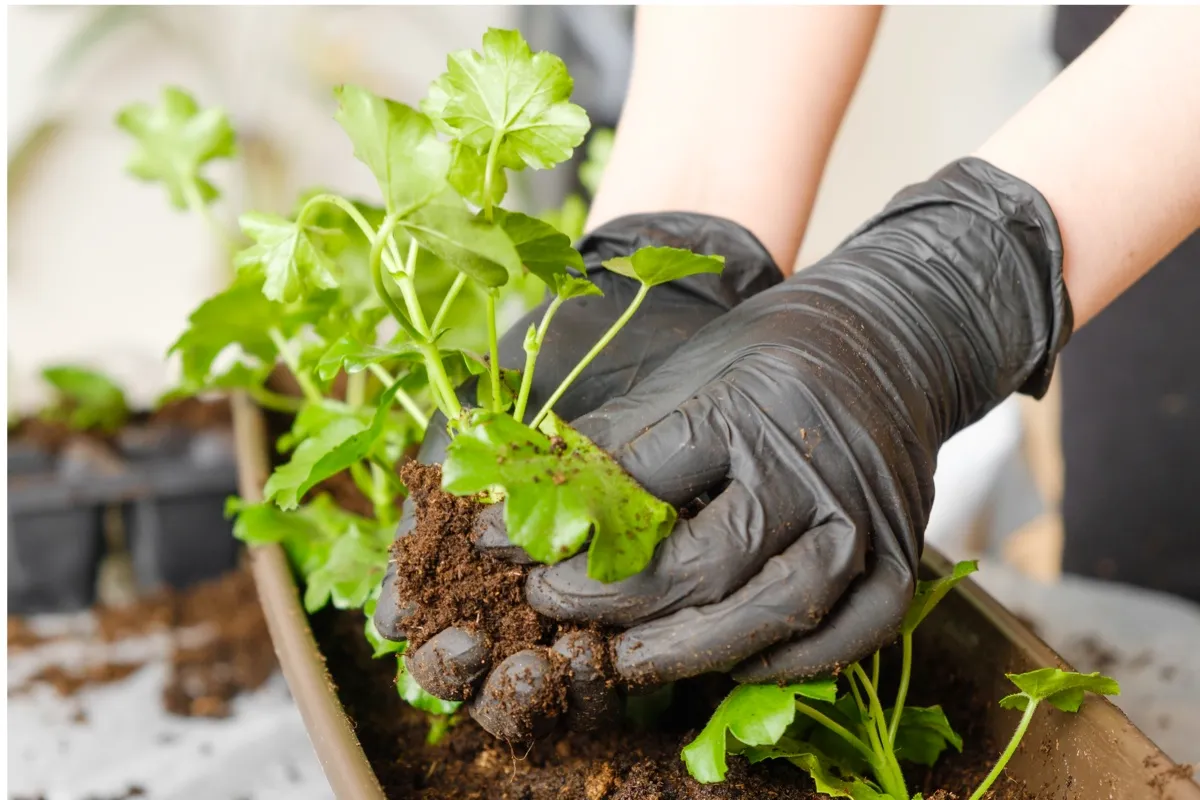For years, environmentalists have been pushing for a ban on the sales of peat in the UK, citing peat’s high carbon emissions as well as the ecological importance of the peatlands it comes from.
This may now soon happen, with the UK government announcing in December plans to ban sales of peat to gardeners by 2024. But some campaigners say this is still not soon enough, while others warn that rapidly scaling up the supply of sustainable alternatives to peat may be a challenge.
What is peat and why is it used for gardening?
Peat is a type of soil made of decaying plant matter and is formed in peatlands, a waterlogged wetland habitat. Peatlands take thousands of years to form, as peat grows at a rate of just one centimetre every 10 years.
“When we take it out of peat bogs and use it, we're depleting it far, far faster than it can be replenished,” says Ali Morse, a peat and water policy expert at The Wildlife Trusts. “It's effectively a non-renewable resource.”
Peatlands provide vital ecosystem services: they decrease flood risk and supply drinking water, as well as supporting rare wildlife. They also store a lot of carbon. Peatlands cover around 3 per cent of the planet’s surface but hold twice as much soil carbon as all the world’s forests. This carbon is released into the atmosphere when peatlands dry out, or when peat is extracted for use in horticulture.
“If we don't take good care of peatland habitats across the world, we are really, really going to struggle to prevent runaway climate change,” says Morse.
Peat’s ability to hold onto water and nutrients have made it prized by gardeners as a growing medium. While its use in horticulture has been declining, nearly a third of all compost sold in the UK in 2021 was still peat, according to the Horticultural Trade Association.

Why is peat compost being banned?
In December 2021, the government published a consultation proposing a ban on sales of peat to gardeners in England and Wales by 2024. “By ending the retail sale of peat in horticulture, we will be protecting our vulnerable peatlands and helping to prevent climate change,” it said.
Peatlands are the UK’s largest stores of carbon, says Prof Alistair Griffiths, director of science at the Royal Horticultural Society (RHS). The proposed ban will help the government deliver on its net zero strategy, he adds.
The UK government has previously set several targets to stop the use of peat. In 2011, it set a voluntary target for compost retailers to end sales of peat by 2020, which was missed. Another voluntary target to end professional use for growing fruit, vegetables, and plants by 2030 is also off track, says Morse.
“Part of the reason that these voluntary targets have been unsuccessful is they just don't send a strong enough steer to the industry,” says Morse. “There is a need to invest in R&D in order to find appropriate replacements for peat. A proper government-sanctioned end to sales is needed to drive that investment.”
Read more about climate change:
- Climate change is causing animals to shapeshift
- Rewilding: can it save our wildlife and temper climate change?
- Climate change: should we change the terminology?
How can I make sure I’m buying peat-free compost?
There are a variety of different peat-free composts which aim to emulate the properties of peat and support healthy plants. Some are made from renewable organic materials such as bark, wood chips, wool or coconut fibre (coir), but they can also be made from organic waste, such as household garden waste collections.
Griffiths notes that many peat-free alternatives were not good quality when they were initially rolled out some years ago, and this belief seems to have stuck with many gardeners. However, research has vastly improved the quality of peat-free alternatives, which can now in some cases provide better results than peat, he says.
However, it is not always clearly shown whether or not compost contains peat, says Morse. “There are composites available which contain peat and they will say things like 'natural material' or 'organic', which of course peat is,” she says. “So you explicitly need it to say peat-free in order to be confident that that is the case.”
Griffiths recommends asking your retailer whether you are using the right peat-free compost for the right purpose. “If you are mulching your beds, look to use barks or other mulches. Or even better, compost at home and use your own compost on your beds,” he says. Simply asking your retailer for peat-free options can help demonstrate consumer demand, he adds.

How much of an impact will switching to peat-free compost make?
Damaged peatlands are responsible for almost 5 per cent of human-made CO2 emissions. “Switching to peat-free and not using peat, alongside peatland restoration, has great potential to significantly reduce emissions,” says Griffiths, adding that restored peatlands also have the potential to draw down and store more carbon. “By switching to peat-free compost, the UK can set a leading example to the rest of the world,” he adds.
The Wildlife Trusts says that even waiting until 2024 is too long, and is pushing for an immediate ban on peat-based compost. It has calculated that waiting another two years would generate another 1.5 million tonnes of CO2, equivalent to the annual emissions of 214,000 UK residents.
- Visit the BBC’s Reality Check website at bit.ly/reality_check_ or follow them on Twitter @BBCRealityCheck
Read more from Reality Check:
